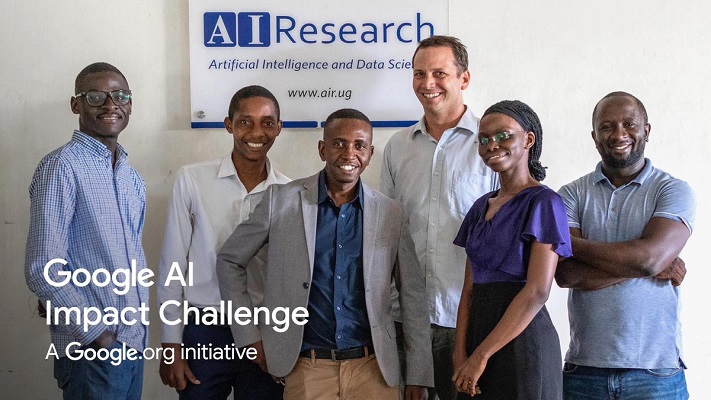An Artificial Intelligent (AI)-powered project from Makerere University (Mak) named AirQo is the only initiative from Africa that has scored a deal with the Google AI Impact Challenge, launched to promote the use of emerging technologies in addressing “big social, humanitarian and environmental problems.”
20 projects from different universities across the globe will share $25 million in grants from Google.org, credit and consulting from Google Cloud and coaching by Google’s Al experts.
According to a statement released by Mak, AirQo, which is based at the College of Computing and Information Sciences (CoCIS) and leverages AI to monitor quality air and analyses atmospheric changes, will get a $1.3m (about Shs4.9bn) grant.
This grant, the statement goes on, will be used to “scale up their existing air quality monitoring coverage and to make use of artificial intelligence (Al) to improve forecasting accuracy, raise awareness of air quality issues and inform public policymaking in this critical area.”
From the beginning
The Google Al Impact Challenge was an open call to nonprofits, social enterprises, and research firms that have the potential to use Al to address societal challenges. Over 2600 organizations applied.
The 20 organizations that have qualified for the fund will next week travel to San Francisco where they’ll join Google Al experts, project managers and the startup specialists from Google’s Launchpad Accelerator for a program that will last six months, from May to November 2019.
Through the Launchpad Program, the statement says, each of the 20 grantees will develop their own OKRs (Objectives and Key Results) and set timelines for project completion.
“We are thrilled to be receiving a grant from Google.org to support the AirQo project that aims to contribute to improved air quality in Kampala and other urban towns,” Eng. Bainomugisha from CoCIS was quoted in the statement.
“With little resources, we have demonstrated that it is possible to build and deploy a robust network of low-cost air quality monitors across Kampala city. The Google grant will make a huge difference to our project and allows us to truly scale up the network up to become an effective resource for all Ugandan citizens and policymakers.”
With the #GoogleAI Impact Challenge, we’re awarding $25M in @Googleorg grants, as well as expertise and resources from @googlecloud and @GoogleAI, to 20 organizations globally using AI to make a humanitarian impact → https://t.co/O78tOs9LEk #io19 pic.twitter.com/0kGrBrKuhP
— Google (@Google) May 7, 2019
Google.org president, Jacqueline Fuller said: “At Google, we have seen how Al can help us accomplish daily tasks and travels, and we believe in its potential to help address some of the world’s biggest humanitarian challenges. We are excited to support Makerere University’s AirQo project work to use Alto achieve even greater social impact.”
“I congratulate the AirQo project team led by Dr. Engineer Bainomugisha upon receiving the Google.org grant to scale up this air quality monitoring innovation. Our population as a country is rapidly increasing and as such additional pressure is being exerted on our cities,” said Mak Vice Chancellor, Prof. Barnabas Nawangwe, according to the statement.
“Air pollution is one of the biggest threats in this regard. This timely innovation is no mean achievement in as far as utilizing research and technology to the improve lives of our urban population is concerned.”
The development comes after a few months ago two Ugandan firms secured multimillion deals from Microsoft to develop their AI projects.
Related:
Leveraging IoT, Rwanda introduces smart street lighting system
Facebook moves to circle Africa with underwater internet cable

